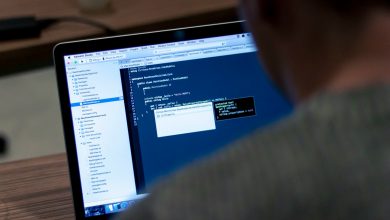
Table of Contents
The Impact of Negative News on Mental Health
The constant influx of negative news in today's digital landscape can have profound impacts on individual mental health. The effect is magnified by the habit of doomscrolling, which refers to the excessive consumption of this type of news through social media feeds. This habit can significantly increase stress levels throughout the day and cause lingering feelings of anxiety.
How Doomscrolling Affects Stress Levels
Psychological science professor Matthew Price points out that stress is cumulative and can escalate as more stressors are added to our daily lives. The act of doomscrolling feeds into this cumulative effect, potentially leading to a state of spiraling stress that continues even after logging off. The social media algorithms that promote contentious content only serve to heighten this state of stress by ensuring a continuous stream of negative news.
Anxiety, Depression, and PTSD Exacerbation
Regular exposure to overwhelming amounts of negative news has been linked to increased instances of anxiety and depression. This is particularly true for individuals with a history of these conditions, for whom doomscrolling can serve as a trigger, exacerbating symptoms of anxiety, depression, and PTSD. The repetitive cycle of seeking more information can also perpetuate these negative emotional states.
The Cycle of Seeking Resolution Through More Information
The behavior of doomscrolling often stems from an earnest desire to find solutions or resolutions to the troubling issues encountered. However, the constant search for more information rarely provides the resolution one seeks. Instead, it tends to contribute to a vicious cycle where the individual becomes more enmeshed in the stressful content without finding the closure or understanding needed to move on.
Social Implications of Collective Stress
When large numbers of people are absorbing and reacting to negative news simultaneously, the stress experienced isn't confined to individuals alone—it spills over into the social sphere. The collective anxiety and tension can lead to a heightened likelihood of confrontations and misunderstandings in everyday interactions, with people more prone to snap at one another due to the overconsumption of stressful content.
Increased Likelihood of Interpersonal Conflict
According to Matthew Price and Bethany Teachman, interactions in public spaces may be compromised by the hidden layer of stress individuals carry with them from their private media consumption. The impact of continuous exposure to distressing global events can make individuals short-tempered, which can translate to an increased likelihood of interpersonal conflicts, from family disputes to professional altercations.
The Need for a Systemic Perspective to Address Issues
Professor Bethany Teachman argues that dealing with the societal impact of doomscrolling requires a systemic approach to recognize and effectively address the widespread consequences. This perspective acknowledges that individual stress and its resultant social strain are part of a larger pattern of how media consumption can influence community dynamics and collective well-being.
Distorted Perception of Reality
The habit of doomscrolling can create a skewed perception of the world around us by magnifying negative events. This constant exposure to alarming news fosters a misconception that we are living in a state of unending crisis. Psychology experts warn that such a distorted view can make us feel like we are always in imminent danger, which in turn, sows pervasive feelings of vulnerability and anxiety. By focusing on a disproportionate amount of troubling information, we risk losing sight of the nuanced and often positive realities of everyday life.
Doomscrolling’s Contribution to a Sense of Constant Danger
Bethany Teachman explains how doomscrolling cultivates a narrative that the world is a perilous place, overshadowing any sense of safety or well-being. This state is not only mentally exhausting but can contribute to a heightened sense of fear and susceptibility, which may be disproportionate to the actual risks we face in our personal lives.
Recognizing Personal Impact and the Need to Disconnect
It is crucial for individuals to understand how much of the global distress they absorb actually affects their personal life. Often, the events causing anxiety may not have a direct impact on one’s daily experiences, and recognizing this can be a pivotal step towards mental well-being. Psychology professionals advocate for an awareness of when it's time to pause the intake of negative news and shift attention to more immediate, local matters or to activities that reinforce personal values and mental health.
Strategies for Managing News Consumption and Stress
Amid the deluge of negative news, it's essential to employ strategies that help manage both the volume of news consumed and the stress it induces. Psychology experts recommend setting boundaries around media exposure to prevent the escalation of negative emotions and to preserve mental health.
Limiting Exposure to Balance Life
Professor Bethany Teachman advises people to find a balance in their consumption of news by staying informed without becoming overwhelmed. This involves being selective about the news sources and the amount of time spent on them, ensuring that media intake does not upset the equilibrium of one's daily life.
Engaging in Mental Health-Promoting Activities
To combat the adverse effects of excessive news consumption, individuals should consciously turn towards activities that promote their mental well-being. This could include hobbies, exercise, or simply engaging in relaxation techniques. Reducing screen time in favor of activities that offer enjoyment and relaxation can act as a counterbalance to stress.
Acting on Personal Values in Daily Life
Focusing on one's core values and translating them into daily actions can propel a person towards a more fulfilling life. This shift away from the virtual arena towards meaningful, value-driven actions can cultivate a stronger sense of self and purpose, ultimately improving the ability to cope with stress.
Focusing on Local Action for a Sense of Control and Contribution
Matthew Price suggests that channeling concern into local community efforts can help individuals feel a sense of control and contribution, which can mitigate feelings of helplessness caused by global issues. By taking tangible steps to improve one’s immediate surroundings, the individual gains a real and satisfying sense of making a difference.




